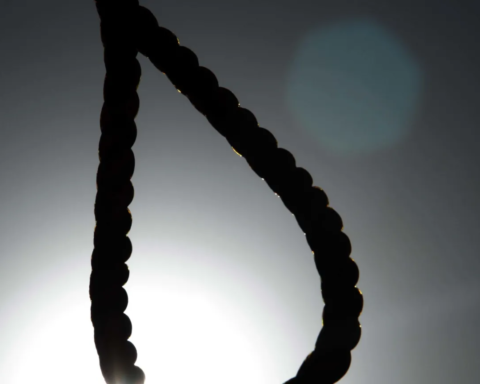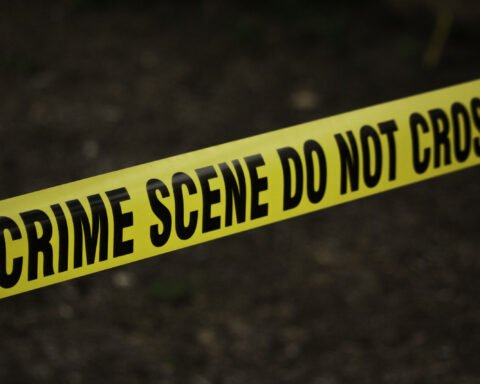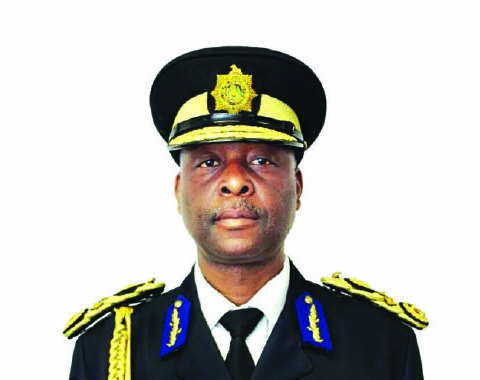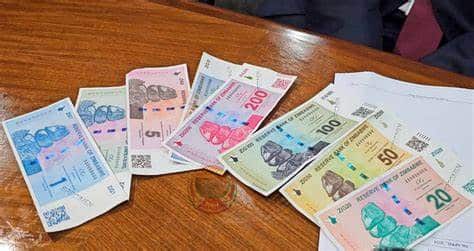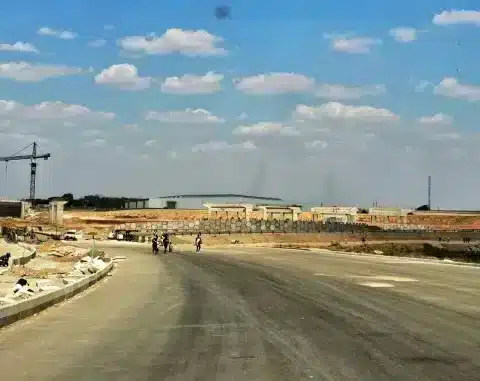HARARE – Zanu PF could be headed for a devastating split ahead of the tricky 2018 synchronised elections, laden with tribal rumblings among party faithfuls belonging to minority Shona tribes, the Daily News can report.
Indicative of the noxious fallout between hitherto comrades-in-arms in Zanu PF was Vice President Emmerson Mnangagwa’s uncharacteristic weekend speech, daring his nemesis in the ruling party.
The 75-year-old vice president stepped out of character on Saturday to hit out at his critics in the deeply-divided party, in sweeping remarks that did not appear to spare President Robert Mugabe and his wife, Grace.
The first couple has made it abundantly clear that they want a root-and-branch shake-up of Masvingo province to uproot dissenting voices campaigning for a change of guard at State House in favour of Mnangagwa.
Masvingo — along with the Midlands province — are bedrocks of support for the Team Lacoste faction, which is rallying behind a Mnangagwa presidency.
Addressing party supporters in Gutu on Saturday, Mnangagwa clearly broke ranks with the powers-that-be in Zanu PF by coming out of his shell, and leaping to the defence of his allies who have been sanctioned for trying to create two centres of power in the ruling party.
In his address at the late Masvingo Provincial Affairs minister Shuvai Mahofa’s memorial service, the embattled vice president urged his supporters in Masvingo to stand by one of their own and never be swayed by their foes.
“People of Masvingo should not be intimidated. You should continue doing what we have been doing because there is nothing wrong with supporting one of your own. The province deserves respect,” said Mnangagwa, while speaking in a veiled tone.
“Let me tell you a little story but one which is big to those that can discern. It is the province of Masvingo which asked the party leadership to declare Mai Mahofa a national hero. It is only those you work closely with who can bear witnesses for you, not those from other provinces, so stay with your people so that tomorrow, they will bear witnesses for you,” he added.
This is the first time that Mnangagwa has made such an open declaration of war against the rival Generation 40 (G40) faction ever since his name started featuring in succession debates more than two decades ago.
Masvingo, just like his own home province, Midlands, is dominated by the Karanga ethnic groups which Mnangagwa identifies with.
Both provinces are rallying behind Mnangagwa to succeed Mugabe, although there are pockets of resistance from G40 proponents in the two regions.
Having been described as a calculative character who keeps cards to his chest, Mnangagwa’s weekend statements have placed the ball squarely in Mugabe’s court and many are waiting how he will react to his deputy’s daring pronouncements.
Analysts were almost unanimous yesterday that with none of the factions fighting to succeed Mugabe willing to make concessions, Zanu PF could be headed towards a calamitous split.
Before his death in October last year, one of the country’s iconic revolutionaries, Cephas Msipa, predicted a possible breakaway by disgruntled Zanu PF members unless Mugabe decisively deals with the factionalism.
Msipa, who was a key player in the Unity Accord negotiations between Zanu PF and PF Zapu in 1987, said factionalism linked to succession was rendering the party dysfunctional.
Political scientist Ibbo Mandaza believes there is no turning back now in the war.
“The fallout is now complete,” declared Mandaza.
“It might be that he (Mnangagwa) has dismissed himself. Mnangagwa could not take more of the salvos targeting him. The attacks aimed at him in Bindura (at a Zanu PF rally last month) were too much and then recently he was described as a traitor after the order of Judas Iscariot. He probably feels that enough is enough. He has been under pressure from his supporters who have been demanding that he stands up and be counted and now he has gone for broke. It could be the beginning of a real split. This signals a clean break,” said Mandaza.
Mandaza said while Mnangagwa cannot be blamed for his stance, it was unfortunate that he has decided to go ethnic.
“One cannot blame him for that (speaking out). What is unfortunate is that he has decided to take an ethnic stand. It cannot be doubted that Mugabe has always promoted the interests of his Zezuru ethnicity, but you cannot answer ethnicity with ethnicity. He needed to have taken a completely national approach. If you say Masvingo is sovereign, then you are answering perceived tribalism with assertive tribalism,” Mandaza said.
Political analyst Maxwell Saungweme said Mnangagwa could have realised that by keeping quiet he might go down in the same way his predecessor Joice Mujuru did.
The former vice president was dismissed from Zanu PF in December 2014 after an unrelenting onslaught triggered by the first lady in September of the same year.
Mujuru had tried to hold her peace against the verbal tirade and when she started to return fire with fire, it just made the situation untenable for her.
Her downfall also cost the political careers of several of her acolytes, through outright dismissals and suspensions for varying periods.
“That he (Mnangagwa) is now speaking out show cheekiness and the valour that’s required to stand up to Mugabe and his wife. This is a new beginning to an interminable, drama-filled succession tussle in Zanu PF. I think it’s time that the real Mnangagwa rise up and speak out, and he is doing just that,” said Saungweme.
“He has to continue, otherwise he loses his supporters from war veterans and (other allies) who have been systematically been purged by G40 machinations. His speaking out will perturb Mugabe, but it’s necessary for both implosion of Zanu PF and progress for the country. If we had a solid opposition, they would capitalise on this to wrestle power from Zanu PF,” he added.
Political analyst Rashweat Mukundu said Mnangagwa will obviously not be a pushover owing to his support base in the civil service.
“Unlike Mujuru who was an easy push over, ED (Mnangagwa) has deeper roots in the State machinery that is civil service and security and will not be an easy pushover. What will settle matters is a decisive move by Mugabe to dismiss ED and right now I doubt. Bid his time . . . raise the cost of dismissal for Mugabe hence talk of another bhora musango,” Mukundu said.
The Daily News reported recently that Mugabe already has a lot of homework to do ahead of next year’s decisive polls after it emerged that allies of Mnangagwa have hatched an improved version of the 2008 Bhora Musango strategy to shipwreck his re-election bid.
This came after relations in the ruling party had become strained following the suspected poisoning of Mnangagwa in August by his alleged rivals who are desperate to destroy his prospects of succeeding Mugabe (93).
Since the alleged poisoning of Mnangagwa, Mugabe and his wife, Grace, have accused the Midlands and Masvingo provinces of fanning tribalism and spreading hate through false claims of witchcraft.
The first family was said to have been hurt by allegations that Mnangagwa ate ice cream from their dairy firm, which was laced with poison.
But the 75-year-old has issued a statement denying that he ate ice cream at the Gwanda interface rally where the alleged poison incident is said to have happened.
Fresh attempts to depose the leadership of the Zimbabwe National Liberation War Veterans Association — the central piece Mnangagwa’s jig-saw puzzle — have inflamed the discord.
In 2008, in a rebellion which is said to have been led by officials loyal to Mujuru and her late husband Solomon — and which came to be known as Bhora Musango — MDC leader Morgan Tsvangirai beat Mugabe and Zanu PF hands down in that year’s historic, albeit hotly-disputed polls.
In that election, Mujuru’s supporters voted for their Members of Parliament but sabotaged the Zanu PF leader.
However, the results of the elections were withheld for six long weeks by stunned authorities, amid widespread allegations of ballot tampering and fraud, which were later revealed by former Zanu PF bigwigs.
In the ensuing sham presidential run-off, which authorities claimed was needed to determine the winner, Zanu PF apparatchiks engaged in a murderous orgy of violence in which hundreds of Tsvangirai’s supporters were killed in cold blood, forcing the former prime minister in the inclusive government to withdraw from the discredited race altogether.
Mugabe went on to stand in a widely-condemned one-man race in which he declared himself the winner.
However, the Southern African Development Community and the rest of the international community would have none of it, forcing Mugabe to share power with Tsvangirai for five years to prevent the country from imploding completely.
Mukundu said what is happening in the ruling party was a sign that the Zanu PF factional fights will only be over until one of the factions is totally vanquished.
“As things stand, Lacoste is fighting back and until Mugabe dismisses ED from the party, then we must expect a continued push back by Lacoste,” he said.
Political analyst Vivid Gwede warned that if he tries to be defiant, Mnangagwa would run the succession race with a big limp since Mugabe holds the advantage of being the appointing authority both in government and in Zanu PF.
“So while he is attacked directly by the first family, he can only box their shadow by attacking G40. His allies, including in the army, are appointees and any extra-legal challenge to Mugabe’s power can be suicidal,” Gwede.
“But Mugabe is equally hamstrung for now because he cannot anything drastic that completely side-lines Mnangagwa and his allies before the elections otherwise the sabotage campaign Bhora Mudziva can become full swing. Yet, if Mnangagwa and his allies allow themselves to be shepherded into the post-election season, they will be most likely dead men walking politically and since it has started ticking, Mnangagwa and his allies most likely know of this time bomb,” he said.
Journalist Hopewell Chin’ono said Mnangagwa has no other choice but to fight to avoid being drowned by the G40 faction.
“He will survive and be triumphant if he has the security sector with him, but that sector is not homogenous. This is a turning point because ED has never talked back publicly; it’s a realisation that his fate is sealed if he doesn’t stand up for himself and his supporters. It’s not a closed case yet, but it is now a long throw for him unless he turns up the heat with action.”
University of Zimbabwe political science professor Eldred Masunungure said Mnangagwa’s bravery was probably informed by the fact that Mugabe was unlikely to sanction wholesale purging of top leadership as it would compromise its chances of winning next year’s general elections.
“The reality is that Zanu PF is faction ridden from top to bottom and this time the situation is more complex than it was in 2014 when Mujuru was expelled,” Masunungure explained.
“I do not see Mugabe punishing Mnangagwa severely at this time. He will have to be extremely judicious in dealing with him given that we are going into elections in seven to ten months. You don’t want to rock the boat at this critical stage and Mnangagwa is alive to this fact, remember he has been Mugabe’s election agent in the last two controversial general elections,” he said.

